
John Laird Abercrombie was an American jazz guitarist. His work explored jazz fusion, free jazz, and avant-garde jazz. Abercrombie studied at Berklee College of Music in Boston, Massachusetts. He was known for his understated style and his work with organ trios.

George Mraz was a Czech-born American jazz bassist and alto saxophonist. He was a member of Oscar Peterson's group, and worked with Pepper Adams, Stan Getz, Michel Petrucciani, Stephane Grappelli, Tommy Flanagan, Jimmy Raney, Chet Baker, Joe Henderson, John Abercrombie, John Scofield, and Richie Beirach, among others.

Journey to Love is the third solo album by jazz fusion bassist Stanley Clarke.

A Secret Place is the sixth album by jazz saxophonist Grover Washington Jr. and his last studio album for Kudu Records. The album topped the Billboard Jazz Albums chart and reached number seven on the Soul Albums chart in 1977.

Walking the Line is an album by Canadian jazz pianist and composer Oscar Peterson, released in 1970. Recorded at: MPS Tonstudio Villingen.

One for My Baby is an album by jazz guitarist Joe Pass that was released in 1988. It was reissued on CD in 1992 by Pablo Records and in 1995 by Original Jazz Classics
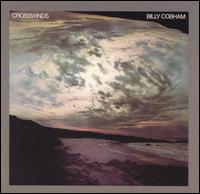
Crosswinds is the second album of fusion drummer Billy Cobham. The album was released in 1974 and it contains four songs in total, all composed by Billy Cobham. It features songs that are more mid-tempo and slow-tempo as opposed to the earlier Spectrum album.
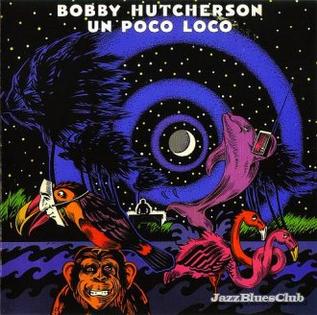
Un Poco Loco is an album by American jazz vibraphonist Bobby Hutcherson, recorded in 1979 and released on the Columbia label. The album was Hutcherson's last for Columbia.

Arcade is an album by the John Abercrombie Quartet, recorded in December 1978 and released on ECM the following year. The quartet features pianist Richie Beirach and rhythm section George Mraz and Peter Donald.

Abercrombie Quartet is an album by the Abercrombie Quartet recorded in November 1979 and released on ECM the following year. The quartet features guitarist John Abercrombie with rhythm section Richie Beirach, George Mraz and Peter Donald.

M is an album by the Abercrombie Quartet recorded in November 1980 and released on ECM the following year. the quartet features guitarist John Abercrombie and pianist Richie Beirach with rhythm section George Mraz and Peter Donald.

The Othello Syndrome is an album by pianist Uri Caine featuring compositions based on excerpts from Giuseppe Verdi's opera Otello which was released on the Winter & Winter label in 2008.

Structures is a studio album by guitarist John Abercrombie with bassist Eddie Gómez and drummer Gene Jackson. The album was released on August 15, 2006 by Chesky Records as part of The New York Sessions series.
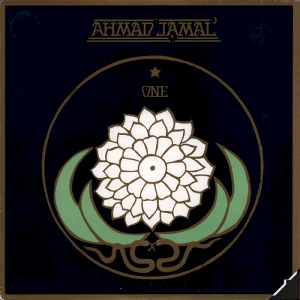
One is an album by American jazz pianist Ahmad Jamal featuring 1978 performances and released on 20th Century Fox in 1979.

Solar is a studio album by jazz guitarists John Abercrombie and John Scofield. It was initially released in 1984 by Palo Alto Records and reissued in 2001 by West Wind Records.
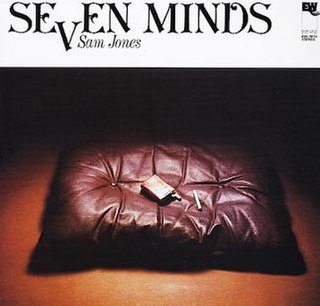
Seven Minds is the fourth studio album by American jazz bassist Sam Jones together with Billy Higgins on drums and Cedar Walton on piano. The album was recorded and initially released in 1975 in Japan via East Wind label. Masaya Katsura Strings Quartet is featured on tracks 2, 4, and 6. Later the album was re-released on CD in 2002 and 2015.
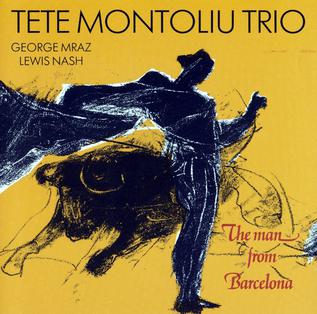
The Man from Barcelona is an album by pianist Tete Montoliu recorded in 1990 and released on the Dutch label, Timeless.

Transatlantic is an album by jazz saxophonist Chris Potter with the 18 piece Danish Radio Big Band recorded in January 2010, and released in 2011 on the Red Dot Music label.
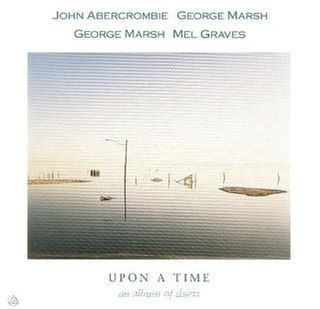
Upon a Time is a studio album by American jazz guitarist John Abercrombie with drummer George Marsh and bassist Mel Graves. The album was recorded in California in 1982 and released by New Albion Records in 1989.

Circle is a studio album by jazz pianist George Cables, recorded in 1979 but not released until 1985 by Contemporary Records.



















